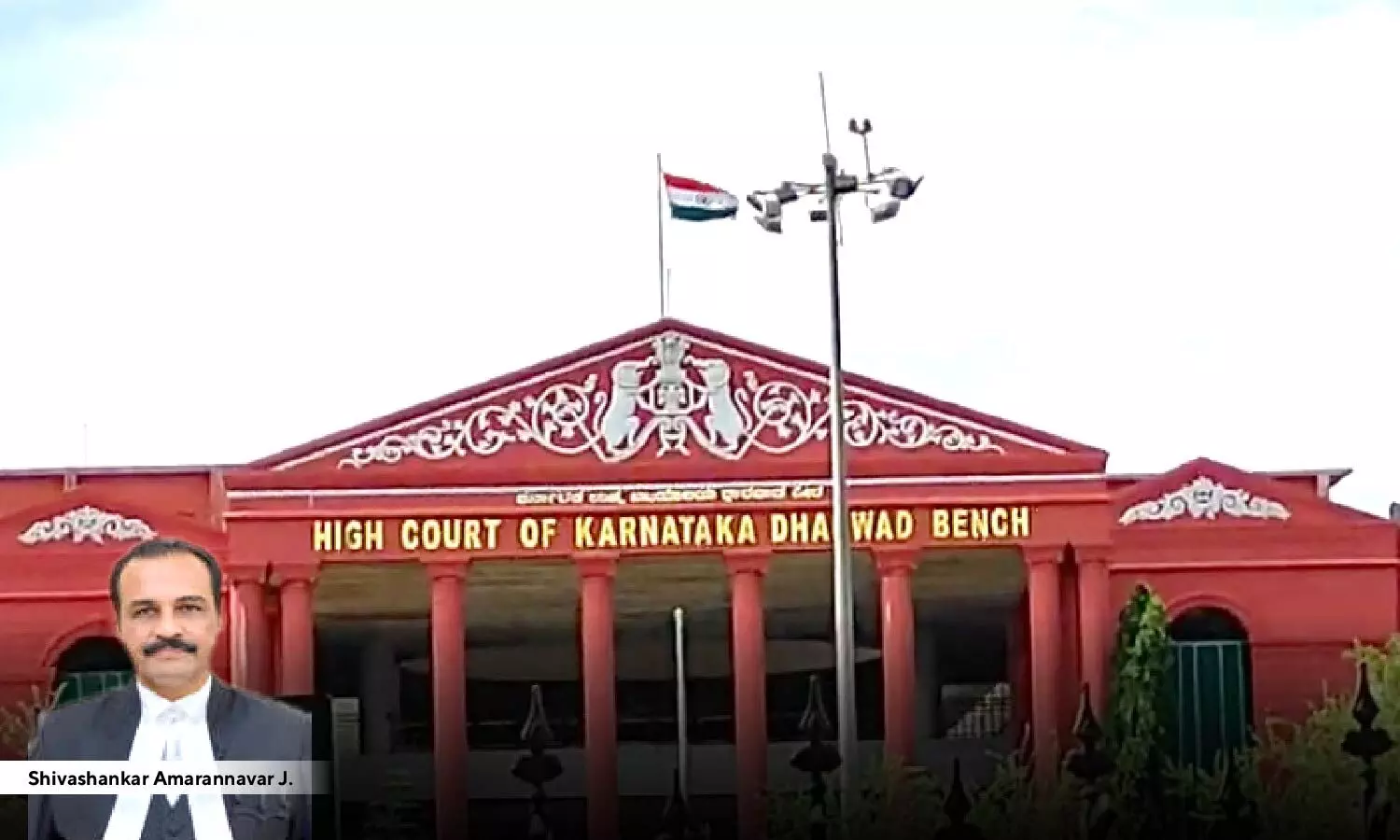
Party Disputing A Sale Deed Is Liable To Demonstrate Evidence Of Fraud: Karnataka High Court
 |
|The Karnataka High Court held that in disputes involving a sale deed, the party alleging fraud is responsible for providing evidence to substantiate their claim.
The Court emphasized that the opposite party, producing the sale deed, need not present additional evidence beyond submitting the document itself under Section 91 of the Indian Evidence Act, 1872 (IEA).
The Cout noted that the Trial and First Appellate Courts erroneously placed the burden on the Appellant to prove that the contents of the sale deed were read to the Respondent during registration, overlooking the fact that the burden of proving fraud rested on the Respondent.
“The said sale deed dated 19.06.1997 is the registered document and to establish the contents of the said documents, the defendant need not lead any evidence to prove the terms of the said sale deed except producing the document itself in view of Section 91 of the Indian Evidence Act, 1872. The defendant has produced the sale deed at Ex.D.1. As the defendant has produced documents itself there is no need for him to give evidence to prove terms of the said sale deed in view of Section 91 of the Indian Evidence Act. The plaintiff who is disputing the extent of the land in said sale deed, which is one of the terms of the sale deed, the burden is on him to prove that the fraud has been played on him in mentioning extent of the property in the said sale deed”, the Bench of Justice Shivashankar Amarannavar observed.
Advocate Sangram S. Kulkarni appeared for the Appellant and Advocate Ashok C. Angadi appeared for the Respondent.
The Appellant bought 20-1 1/3 guntas of land and had possession of the entire property. The Respondent claimed ownership of only 10-1 1/3 guntas and filed a suit. In the original suit, the Respondent sought a declaration as the owner in possession of the property, injunctive relief, and the removal of the Appellant's name from the revenue records. A second appeal was filed before the High Court seeking to overturn the judgment and decree of the First Appellate Court. The First Appellate Court had affirmed the order of the Trial Court upholding the claims of the Respondent in the land dispute case.
The Court framed the following issue: “Whether the suit filed that the Respondent seeking relief of declaration and injunction without seeking possession is maintainable?”
The Bench observed that per Section 26(1) of the Specific Relief Act (SRA) if a contract or written instrument does not express the real intention of the parties due to fraud or mutual mistake, the parties may file a suit for rectification. However, the Respondent did not seek any relief for the rectification of the sale deed. The Bench emphasized that a suit without seeking rectification or any declaration regarding the contents of a registered document, such as a sale deed, is not tenable.
“As per the sub-section (1) of Section 26 of the Specific Relief Act through fraud or a mutual mistake of the parties, a contract or other instrument in writing does not express the real intention, the parties may institute suit to have instrument rectified… The suit without seeking such relief of rectification of the sale deed or any declaration regarding the contents of the said sale deed. The suit for the bare relief of declaration and injunction against a registered document i.e. sale deed is not tenable”, the Bench added.
The Court noted that the suit, seeking only declaration and injunction without the relief of possession, is deemed not maintainable, aligning with the precedent set by the Apex Court in the case of Anathaula Sudhaakar v P Buchi Reddy [(2008) 4 SCC 594]. The Court held that the Respondent's suit, seeking a declaration and injunction without the relief of possession, was not maintainable.
Additionally, the Court noted that the Respondent, having alleged fraud by the Appellant, bears the responsibility of proving such fraud. The sale deed is a registered document, and according to Section 91 of the Indian Evidence Act, 1872 (IEA), to establish its contents, the Appellant need not present any evidence apart from producing the document itself. The Appellant has provided the sale deed, and as per Section 91, there is no obligation for additional evidence to prove the terms of the sale deed. It is incumbent upon the Respondent, disputing the extent of the land in the sale deed, to demonstrate that fraud occurred in specifying the property's extent in the said document.
The Court observed that the Respondent, asserting illiteracy and impaired vision and hearing in the plaint, failed to mention these details in his evidence. The Trial and First Appellate Courts, in evaluating the witness's testimony to the sale deed, incorrectly concluded that it was the Appellant's responsibility to prove that the contents of the sale deed were read to the Respondent during registration. This misjudgment occurred despite the burden of proving fraud resting on the Respondent. The Appellant asserted possession since 1982 with evidence of tree growth on the property, as confirmed by the Commissioner's report. The Courts' error in granting declaration and injunction for only 10-1 1/3 guntas, disregarding the entire 20-1 1/3 guntas mentioned in the sale deed, is noted.
Accordingly, the Court allowed the Appeal and set aside the judgment and decree of the Trial and First Appellate Court.
Cause Title: Ramesh Krishna Nayak v Naryana Rama Nayak (2023:KHC-D:13873)